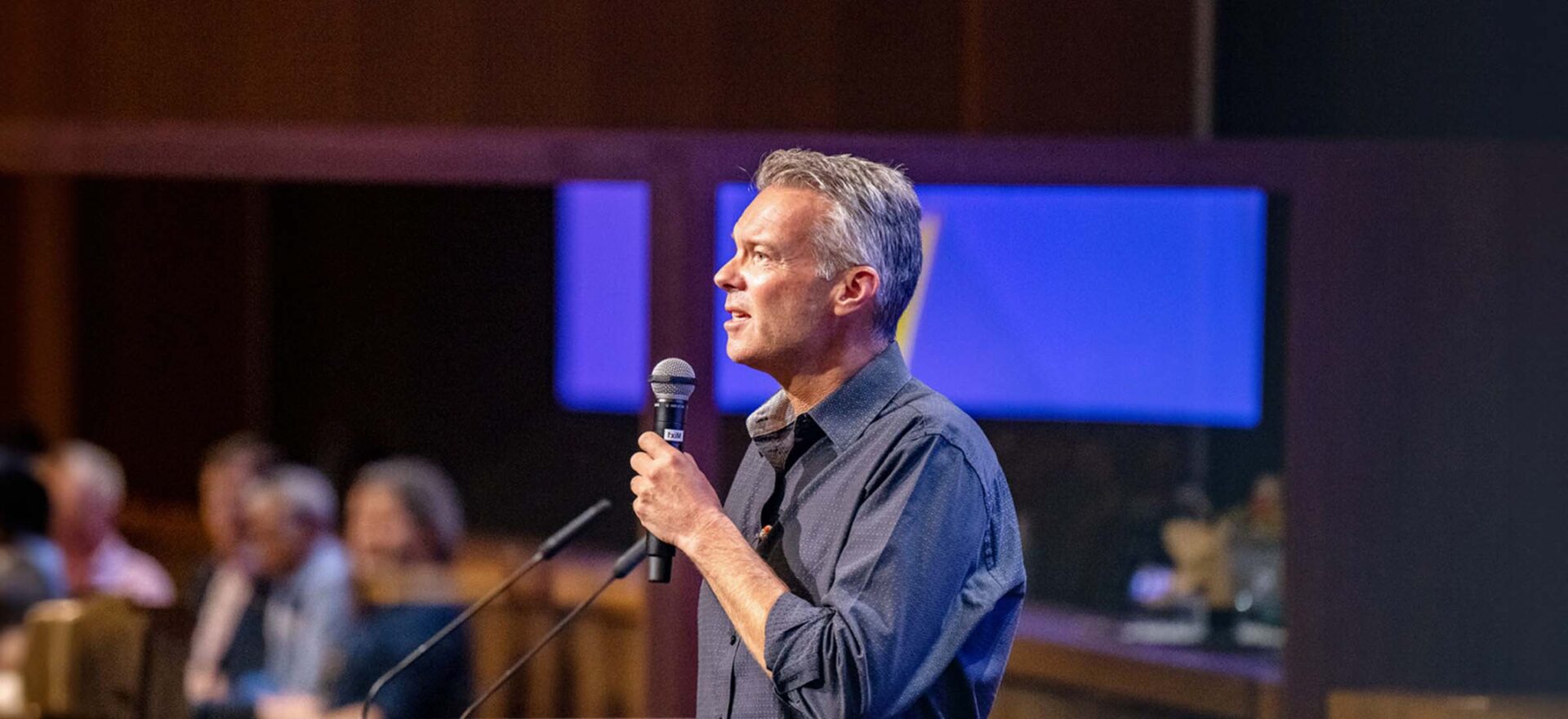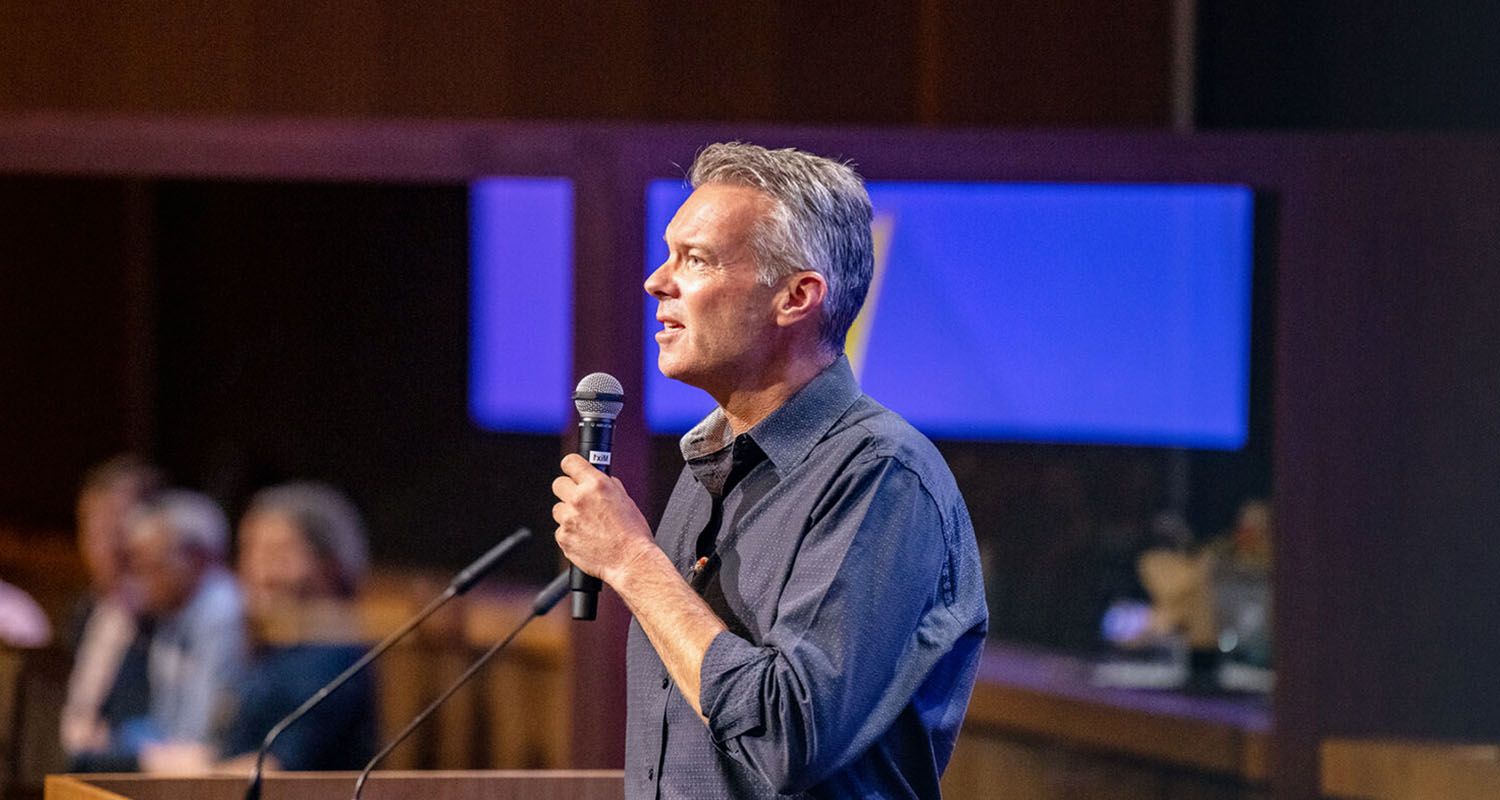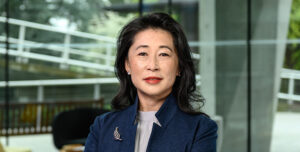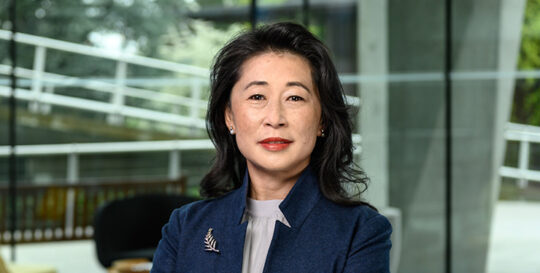


The TONOMUS Global Center for Digital and AI Transformation provides fresh insights and evidence-based advice to help organizations successfully navigate their digital and AI transformation journeys.
About
The TONOMUS Global Center for Digital and AI Transformation provides fresh insights and evidence-based advice to help organizations successfully navigate their digital and AI transformation journeys.
The mission of the TONOMUS Global Center for Digital and AI Transformation is to provide academic research and thought leadership insights on the potential of digital transformation and AI to inspire a more prosperous, sustainable and inclusive world. The center’s focus is on:
Predicting digital technology and business model trends and understanding the dynamics of digital disruption
Setting up a digital and AI transformation journey to succeed and navigating the organizational dynamics that often derail transformation
Adapting people, resources, processes, and organizational culture to embrace digital and AI transformation
The responsible and sustainable impact of digital technologies and AI

We challenge the ideas that shape tomorrow’s digital landscape by building, testing, and publishing practical and applied frameworks. These frameworks are based on data-driven insights from our interactions with thousands of executives a year.
Sarah Toms is Chief Innovation Officer at IMD where she leads the Learning Innovation and AI strategy. Sarah previously co-founded Wharton Interactive, an initiative at the Wharton School that has scaled globally. A demonstrated thought leader in the educational technology field, she is fueled by a passion to find and develop innovative ways to make every learning environment active, engaging, more meaningful, and learner-centric. Sarah is an AWS Education Champion, and has been on the Executive Committee of Reimagine Education for eight years. She has spent more than 25 years working at the bleeding edge of technology, and was an entrepreneur for over a decade, founding companies that built global CRM, product development, productivity management, and financial systems. In addition, Sarah is co-author of The Customer Centricity Playbook, which was named Best Business Book at the Digital Book Awards 2019.
Assistant Director of the TONOMUS Center for Digital and AI Transformation

Tima is the Assistant Director at the TONOMUS Global Center for Digital and AI Transformation, where she plays a pivotal role in driving the Center’s initiatives and ensuring impactful outcomes. In her current position, Tima is responsible for overseeing a diverse range of projects, managing relationships with key stakeholders, leading the communication strategy, and supervising the operational functions that support the Center’s mission.
Prior to her current position, Tima managed Orchestrating Winning Performance (OWP), IMD’s flagship program. She was responsible for overseeing all elements of the program, including its design, execution, and operational management, ensuring a seamless and impactful experience for global business leaders. She joined IMD in 2021.
Researcher and Writer

Tomoko Yokoi (@tokoyokoi) is a researcher and adviser at the TONOMUS Center for Digital and AI Transformation. She is a Forbes Contributor on topics related to digital transformation and innovation, and her insights have been published in numerous outlets such as Quartz and MIT Sloan Management Review.
Yokoi brings unique practitioner insights to her research and advisory services, drawing from her 20 years of experience leading digital transformations and marketing excellence as a senior executive in B2B and B2C industries. Having worked in Fortune 500 companies and fast-growing software ventures, she understands the unique digital challenges faced by both large organizations and digital upstarts needing to scale.
She is the co-author of Hacking Digital: Best Practices to Implement and Accelerate Your Business Transformation, and is currently focused on responsible digital transformation practices.
Research Fellow

Jialu Shan is a research fellow at the TONOMUS Global Center for Digital and AI Transformation and the Center for Future Readiness. Her research areas include digital business transformation, business model innovation and new practices, and corporate governance practices. She is particularly interested in the Asian market.
Shan obtained her PhD in economics (management) from the Faculty of Business and Economics at the University of Lausanne (HEC, Lausanne) in 2012. Before joining IMD she worked as a lecturer at the International Hotel School of César Ritz Colleges in Brig, Switzerland.
She has published works on a variety of topics, including business model innovation and digital innovation in the Asian market.
Selected publications
Academic Journals
Greeven, M., Yu, H., and Shan, J. (2024). Engineer Your Own Luck, MIT Sloan Management Review, Summer edition.
Wade, M. and Shan, J. (2023). How does your company match up to global leaders when it comes to digital disruption? I by IMD Brain Circuits, July 2023
Wade, M. and Shan, J. (2023). Digital Vortex 2023 revealed, I by IMD, May 2023
Bonnet, D., and Shan, J. (2023) Twitter’s future: Lift off or crash and burn? I by IMD, January 2023
Yu, H., Shan, J., Boutalikakis, A., Tempel, L., and Balian, Z. (2022). What makes a company “future ready”? Harvard Business Review online, March 2022
Greeven, M., Yu, H., and Shan, J. (2021). Why Companies Must Embrace Microservices and Modular Thinking, MIT Sloan Management Review, Fall edition.
Wade, M. and Shan, J. (2021). What the West can learn from China’s live commerce success, MIT Sloan Management Review, January 2021.
Wade, M. and Shan, J. (2020). Covid-19 has accelerated digital transformation, but may have made it harder not easier, MIS Quarterly Executive, 19 (3), pp.213-220
Wade, M., Bonnet, D. and Shan, J. (2020). Lifting the lid on disruption fever, Journal of Strategy and Management, 13(4), pp.495-501
Yu, H. and Shan, J. (2020). Where does resilience come from? It’s your progress in digital transformation, especially in times of crisis, The European Business Review
Liu, Z., Shan, J., Delaloye, M., Piguet, J-G. and Glassey-Balet, N. (2020). The role of public trust and media in managing the dissemination of COVID-19-related news in Switzerland, Journalism and Media, 1(1), pp.145-158
Yu, H. and Shan, J. (2019). How some companies beat the competition…for decades and even centuries, The European Business Review
Yu, H. and Shan, J. (2019). The big gap between strategic intent and actual, realized strategy, Journal of Financial Transformation, vol.50, pp.10-12
Liu, Z., Shan, J. Glassey-Balet, N. and Fang, G. (2017). Semantic Social Media Analysis of Chinese Tourists in Switzerland. Information Technology & Tourism, 17(2), 183-202.
Strebel, P., Cordin, M. and Shan, J. (2016). Competitive profits and the annual report: Measuring the sustainable business. Journal of Business Strategy, 37(2), 42-49.
Liu, Z., Shan, J. and Pigneur, Y. (2016). The role of personalized services and control: An empirical evaluation of privacy calculus and technology acceptance model in the mobile context. Journal of Privacy and Security, 12(1-3), 123-144.
Shan, J. (2012). Three essays on governance practices in different environmental contexts: Using inter-discipline approaches at different organizational levels, Doctoral dissertation, University of Lausanne
Burkert, M., Ivens, B. S., and Shan, J. (2012). Governance structures in international buyer-supplier relationships: an empirical test. Industrial Marketing Management, 41 (3), 544-556.
Conferences
Shan, J., Obwegeser, N., Teracino, E. and Wade, M. (2020). A double-edged sword named agility: a critical perspective on organizational responses to environmental disruption. The 28th European Conference on Information Systems, Marrakech, Morocco
Liu, Z., Shan, J. Bonazzi, R. and Pigneur, Y. (2014). Privacy as a trade-off: introducing the notion of privacy calculus for context-aware mobile applications. 47th Hawaii International Conference on System Science, Hawaii
Shan, J. and Dong, M. (2012). Uncertainty judgment on revenue recognition under IFRS: with different earnings incentives. American Accounting Association Annual Meeting, Washington DC, US.
Shan, J. and Dong, M. (2012). Financial determinants and comprehensive income reporting: The case of US commercial banks. 35th European Accounting Association Annual Congress, Ljubljana, Slovenia
Ivens, B. S., and Shan, J. (2008). Governance mechanisms in international business relationships: an empirical test. In Proceedings of the 24th Annual Conference of the Industrial Marketing & Purchasing Group, Uppsala.
Case Studies
Yu, H., Shan, J. (2018). Disrupting the disruptors: How Ovopark breathes new life into the bricks-and-mortar store, IMD-7-2046, IMD Business School, Lausanne.
Wade, M., Fang, Y., Shan, J. and Yang, Y. (2016). Uber takes on China, IMD-7-1807, IMD Business School, Lausanne.
Cantale, S., and Shan, J. (2013). Microsoft’s acquisition of Skype, IMD-1-0337, IMD-1-0337T, IMD Business school, Lausanne.
Szekely, F., Shan, J., and Chaffin, Ed. (2013). IMD high performance leadership, IMD Business school, Lausanne.
Research Fellow

Konstantinos Trantopoulos is a Research Fellow at the TONOMUS Global Center for Digital and AI Transformation and serves as a Senior External Advisor at D ONE, a premier consulting firm specializing in data and AI.
His research and client advisory span topics of strategy, corporate development, innovation, and the impact of digital & AI on organizations. His work has involved collaborating with Fortune 500 companies, private equity firms, and government agencies throughout Europe, the US, and the GCC.
Konstantinos earned his PhD in Management (Strategy) from ETH Zurich, where his research was recognized with the prestigious ETH Medal. He also spent time as a visiting fellow at MIT and the University of California San Diego.
His research contributions are featured in some of the world’s top academic journals, including Management Information Systems Quarterly, California Management Review, Industry and Innovation, and Environmental Science & Technology. His work has also been featured in major media outlets, influencing both scholarly discourse and industry practices.
Our programs
Our research informs our rich portfolio of in-person, live, and online digital and AI transformation programs aimed at equipping you with the latest tools, knowledge, and skills to understand data, harness digital disruption, and prepare yourself for a digital future that is happening now.
IMD is dedicated to equipping managers and professionals with the knowledge and skills necessary to navigate the evolving landscape of AI. We empower students to harness the potential of AI, transforming it into a strategic advantage for their organizations.

Imagine being able to keep the conversation going after a program. IMD’s AI-powered sessions enable participants to go deeper into topics of interest that they just learned, while still gaining the benefit of critical IMD expertise. The ability for learners to have unscripted conversations is just the tip of the iceberg. Stay tuned for more AI-enabled pedagogical advancements, coming soon from IMD.
IMD is grateful for the support we receive from TONOMUS for the Global Center for Digital and AI Transformation and its faculty chair.

In 2024 TONOMUS awarded IMD a grant that will fund new independent research and innovation activities, building on the work IMD has conducted in this critical space over the past decade. TONOMUS is delivering a full-scale, end-to-end cognitive technology ecosystem for NEOM. By harnessing the power of AI, Internet of Things, and blockchain, the company is bringing cognitive cities to life by pushing the boundaries of knowledge. NEOM is Saudi Arabia’s land of the future in Tabuk, an urban area built on the foundations of digital and sustainability, with an ambition to redefine livability, business, and conservation.






















